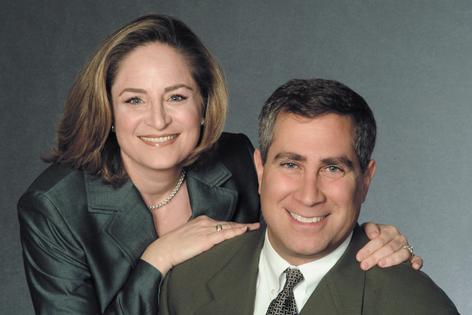How does the beneficiary receive the title to a home in revocable trust?
Q: I watched one of your videos about paying off your mortgage and I have a question. I have a living revocable trust and my home has been titled in the name of the trust. My mortgage will be paid off soon.
Let’s say I die. and at that time I own the house free and clear. Does the beneficiary of the trust then go to an attorney to transfer the title to the property? Or, should they go down to the County Assessor’s office, with the death certificate and trust documents to transfer title?
A: Let’s clear some things up first. Once you put the title to your home into a revocable trust, the revocable trust is the owner of the home. You don’t own the home outright. You still control the revocable trust and can decide what to do with the home and can even change the revocable trust. But the home is in the name of the trust.
The revocable trust is totally separate from any loan you may have on the home. The loan is a lien against your home. The title to the home is held by your trust. Whether you have a loan doesn’t affect ownership of the home. You still own it. In this case, once the mortgage is satisfied, you will continue to own the home through your trust.
The benefit of having title to the home held in your revocable trust is that the trust survives you. That means your home will continue to be owned by the trust after you die. When you put property into a trust, the deed conveying ownership of the home goes from you, individually, to you as trustee of your trust.
If constructed properly, your trust document already names the successor trustee and successor beneficiaries. For example, your trust might name one or all of your kids or other heirs as both co-trustees of the trust and equal beneficiaries. Or, one of your kids may be named as your successor trustee and yet all of your children (or other heirs) will be equal successor owners to the trust.
Once you die, your revocable trust could become one of several different types of trusts for the benefit of your kids, grandchildren, or other heirs. The trust could either be revocable or irrevocable. There are so many different types of trust for various purposes. For these different types of trusts, and when you’d want to employ one over another, you should speak with an estate attorney.
Most people have a simple revocable trust, which is designed to pass assets to their heirs without going through the hassle and expense of probate. Upon the death of the owner, the document names the successor trustee or trustees and who the successor owners will be. These successor trustees and owners may decide to keep the property and rent it out or live in it. Or, they may decide to sell. Property titled in the name of the trust could simply convey ownership of the home from the trust to the new owner. The successor trustees would never have to put title to the home into their names before transferring ownership.
Instead, they’d need to supply some paperwork to the closing attorney or settlement agent to prove that the successor trustee is now the trustee of the trust. For that, the successor trustee would need to provide the settlement agent with a copy of the trust agreement, a copy of your death certificate, some documentation proving the successor trustee’s identity, and perhaps some other documentation the settlement agent will need.
What if one of your heirs wants to keep the home and take it out of the trust? They’d need to draft a deed conveying ownership of the home from your revocable trust into the heir’s revocable trust or into their own name. That deed would need to get recorded or filed with the proper paperwork with the office that handles the recording or filing of real estate documents where the home is located.
========
(Ilyce Glink is the author of “100 Questions Every First-Time Home Buyer Should Ask” (4th Edition). She is also the CEO of Best Money Moves, a financial wellness technology company. Samuel J. Tamkin is a Chicago-based real estate attorney. Contact Ilyce and Sam through her website, ThinkGlink.com.)
©2024 Ilyce R. Glink and Samuel J. Tamkin. Distributed by Tribune Content Agency, LLC.

































Comments